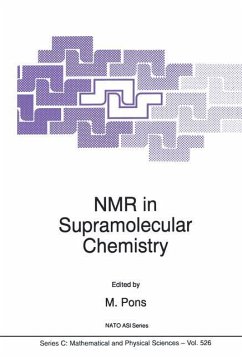
Chemistry's Bridge: Supramolecular Science
Versandkostenfrei!
Versandfertig in 6-10 Tagen
26,59 €
inkl. MwSt.

PAYBACK Punkte
0 °P sammeln!
Chemistry, traditionally focused on the dance of atoms within molecules, finds a fascinating bridge in supramolecular science. Here, the spotlight shifts to interactions between molecules, a realm governed by weaker, yet highly selective forces. Imagine intricate Lego sets - individual molecules with specific shapes and functions that self-assemble into magnificent structures.This intricate choreography unlocks a new level of control. Scientists can design "host" molecules that selectively bind specific "guest" molecules, creating dynamic assemblies. These assemblies can even respond to light,...
Chemistry, traditionally focused on the dance of atoms within molecules, finds a fascinating bridge in supramolecular science. Here, the spotlight shifts to interactions between molecules, a realm governed by weaker, yet highly selective forces. Imagine intricate Lego sets - individual molecules with specific shapes and functions that self-assemble into magnificent structures.This intricate choreography unlocks a new level of control. Scientists can design "host" molecules that selectively bind specific "guest" molecules, creating dynamic assemblies. These assemblies can even respond to light, heat, or specific molecules in their environment, making them remarkably adaptable.Supramolecular science acts as a bridge, connecting the world of single molecules to the realm of complex structures. With its potential to mimic life's intricate machinery and create materials with tailored properties, this field holds immense promise. From targeted drug delivery systems to novel sensors andeven molecular machines, the possibilities are vast. This bridge between the molecular and the supramolecular paves the way for a future filled with groundbreaking discoveries.














